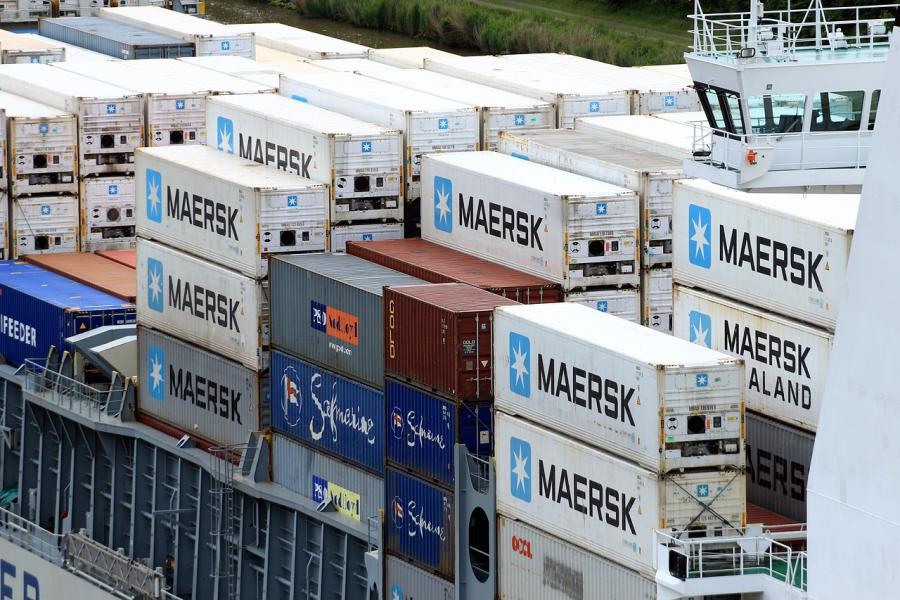Introduction: The Importance of Managing Shipping Costs
As an online business owner in Nigeria, you should understand the significance of managing shipping costs to stay competitive. You can reduce Shipping Costs for Your online store in Nigeria by choosing the right shipping partner, negotiating shipping rates with logistics providers, optimizing packaging, offering free shipping above a minimum order threshold, and more.
In Nigeria, logistics challenges can greatly impact profitability. High delivery costs, often resulting from infrastructure issues, can make products less affordable for customers and eat into your bottom line. For instance, a study by the Nigerian Economic Summit Group found that logistics costs account for up to 30% of the total cost of goods sold in Nigeria. By controlling shipping expenses, you can increase competitiveness, improve profitability, and provide customers with better prices. For small and medium-sized enterprises (SMEs), optimizing shipping costs is crucial for sustainability and growth in Nigeria’s online market. By implementing effective shipping cost management strategies, you can improve your business’s chances of success in this thriving market.
2. Choosing the Right Shipping Partner
To reduce shipping costs for your online store in Nigeria, selecting the right shipping partner is vital. As an SME owner, comparing services and rates from providers like GIG Logistics, Kwik Delivery, and DHL Nigeria can help. In choosing the right partner you should consider the following factors:
- Rates and Pricing Models: Compare pricing structures to find the most cost-effective options, considering factors like weight, distance, and delivery speed.
- Coverage and Delivery Speeds: Ensure the provider covers your target locations and offers flexible delivery options, such as same-day or next-day delivery.
- Reliability and Customer Service: Look for providers with a proven track record of dependable service and strong customer support.
3. Negotiating Shipping Rates with Logistics Providers
As an SME owner, you can reduce shipping costs for your online store in Nigeria by negotiating rates with logistics providers. Many providers offer discounts to businesses with consistent shipping volumes. By negotiating effectively, you can increase profitability and stay competitive in Nigeria’s online market. In doing this you should Consider these negotiation strategies such as:
- Volume Discounts: Request discounted rates based on your regular order volumes, ensuring significant savings.
- Long-Term Contracts: Commit to a long-term partnership to secure better terms and lower rates.
- Seasonal Rates: Ask for special rates during high-demand periods, such as holiday seasons, to optimize costs.
4. Optimizing Packaging to Reduce Shipping Weight and Size
As a business owner, optimizing packaging is important to reduce shipping costs for your online store in Nigeria. Logistics providers charge based on weight and volume, making compact packaging essential. Source affordable, lightweight packaging materials locally, such as from markets in Lagos or Abuja, to further reduce costs and maximize savings. To minimize costs you should:
- Choose Compact Packaging Materials: Use packaging that fits snugly around products to reduce dimensions.
- Use Lightweight Materials: Opt for bubble wrap, padded mailers, or polybags instead of bulky boxes.
- Eliminate Excess Packing: Avoid over-packing to reduce both weight and size.

5. Offering Free Shipping Above a Minimum Order Threshold
Offering free shipping can drive sales and customer loyalty for your SME online store. By setting a minimum purchase threshold, you can offset shipping expenses. For example, setting a ₦5,000 minimum order threshold can help offset shipping costs and increase average order value. Some tips you should consider are:
- Calculate the Threshold: Base the minimum order amount on your average shipping cost to break even.
- Boost Order Value: Free shipping thresholds encourage customers to buy more, reducing per-order shipping costs.
- Build Customer Loyalty: Customers appreciate free shipping options and are more likely to return, fostering repeat business.
6. Using Zone-Based Shipping Rates for Cost Efficiency
As an SME owner, implementing zone-based shipping rates can optimize your delivery costs in Nigeria. This strategy segments delivery areas into zones, reducing costs for nearby deliveries. To implement zone-based shipping you should:
- Define Shipping Zones: Divide Nigeria into regions, such as Lagos, Abuja, and other major cities, to segment delivery areas.
- Adjust Rates Accordingly: Offer lower rates for close-by customers and higher rates for distant regions.
- Communicate with Customers: Display zone-based shipping rates at checkout to set clear expectations.
Best of all, you can easily separate and create varying shipping rates for your products with Lumi Business.
For instance, a Lagos-based business can offer lower rates for deliveries within Lagos and higher rates for deliveries to other states, making shipping more cost-efficient.
7. Partnering with Local Delivery Services for Last-Mile Solutions
Last-mile delivery can significantly drive up shipping costs, especially in Nigeria’s remote or densely populated areas. Partnering with local delivery services can help SMEs cut costs. Some of the benefits of partnering are:
- Reduce Long-Distance Transport: Local partners handle regional deliveries, minimizing long-distance shipping needs.
- Faster Local Delivery: Providers like Max.ng, Gokada, and Jumia Logistics offer same-day or next-day delivery within city limits at lower costs.
- Reliable Last-Mile Efficiency: Local providers navigate Nigerian cities’ traffic and infrastructure challenges effectively.
8. Using Real-Time Tracking to Minimize Costs Associated with Delivery Issues
Delivery issues can inflate shipping costs for SMEs. Real-time tracking helps manage these issues, reducing costs. Tools like Nigeria’s TrackNow and LogisticsNG enable real-time tracking. Some of the benefits are:
- Proactive Customer Notifications: Inform customers of delivery times and updates to minimize missed deliveries.
- Efficient Route Management: Optimize routes in real-time to avoid delays and reduce fuel consumption.
- Monitoring Delivery Performance: Track logistics providers’ performance to identify areas for improvement and negotiate better rates.
9. Implementing a Pickup Point System
As an SME owner, offering pickup points can optimize your delivery process in Nigeria. This system allows customers to collect packages from convenient locations, reducing last-mile delivery costs. Nigerian online stores like Jumia and Konga successfully use pickup points to improve delivery flexibility and cut costs. Some of the Benefits are:
- Cost Savings: Avoid direct-to-door delivery costs and minimize last-mile expenses.
- Enhanced Customer Flexibility: Give customers control over when and where they collect orders.
- Reduced Failed Deliveries: Minimize issues related to missed or unavailable customers.
10. Consolidating Shipments to Reduce Per-Order Costs
As a business owner with high order volumes, consolidating shipments can significantly cut costs. By grouping orders headed to similar locations, you can reduce per-order expenses. For instance, consolidating shipments for Lagos and surrounding areas can reduce costs. In consolidating shipments you can Implement these strategies:
- Combine Orders for Nearby Destinations: Bundle deliveries for customers nearby.
- Set Regular Delivery Days: Ship consolidated orders on specific days to reduce per-order costs.
- Use Centralized Warehouses: Store products in strategic locations for efficient bundling.
11. Utilizing Technology for Data-Driven Shipping Decisions
As an SME owner, leveraging data analytics optimizes logistics strategies, driving business growth, and reduces shipping costs. Tools like Lumi Business’ Inventory Analytics help Nigerian online stores analyze sales patterns.You Utilize data analytics to:
- Track Shipping Expenses: Identify high-cost regions and volumes to adjust logistics.
- Optimize Inventory Placement: Position popular products in strategic locations to reduce shipping distances.
- Monitor Shipping Trends: Analyze customer demand to inform inventory allocation and shipping options.
12. Offering Discounts for Bulk Purchases to Offset Shipping Costs
As an SME owner, offering bulk discounts incentivizes customers to make larger purchases, reducing shipping frequency and costs. For example, offering 10% off orders over ₦10,000 can encourage customers to buy more, reducing shipping costs and boosting sales. Some of your Benefits are:
- Lower Shipping Frequency: Fewer shipments mean reduced shipping costs and logistical hassle.
- Higher Average Order Value: Bulk discounts encourage larger purchases, increasing revenue.
- Greater Customer Satisfaction: Customers appreciate cost savings through bulk purchase discounts, fostering loyalty.
To effectively reduce shipping costs for your online store in Nigeria, consider combining strategies such as negotiating rates, optimizing packaging, and leveraging technology. Implementing these tactics can significantly minimize expenses. Continuously monitor your shipping costs to identify areas for improvement. Explore partnerships and invest in technology to optimize logistics. By prioritizing cost-effective shipping, you’ll enhance profitability, customer satisfaction, and competitiveness in Nigeria’s online market.
Ready to optimize your shipping strategy? Streamline fulfilment and reduce costs with Lumi Business’ innovative inventory and order management tools. Discover how their solutions can boost your Nigerian online store’s efficiency and profitability. Sign up today and start saving!
